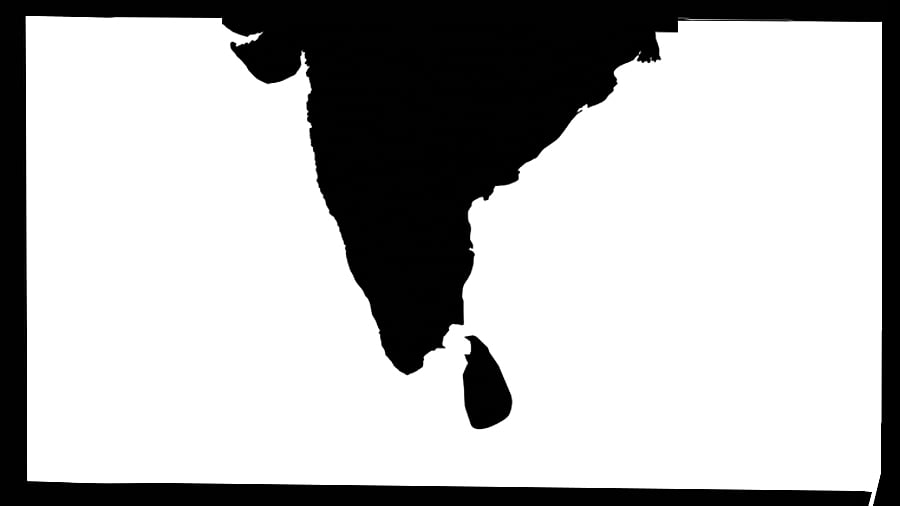
At a time when India’s much-vaunted mantra of ‘Neighbourhood First’ is under considerable strain and it finds itself with few friends in the region, Prime Minister Narendra Modi’s upcoming visit to Sri Lanka may well be the elusive silver lining New Delhi is seeking.
India has managed to maintain cordial ties with the island nation now helmed by President Anura Kumara Dissanayake whose party, the Left-leaning Janatha Vimukthi Peramuna (JVP), is known for its antipathy towards New Delhi. In a welcome move, Dissanayake chose to make his first overseas visit to India, not China, shortly after becoming President. A decision driven undoubtedly by pragmatism, knowing well that it was India that provided financial assistance to Sri Lanka during its debilitating post-pandemic economic crisis, while China looked the other way.
India, eager to keep the strategically located island nation within its sphere of influence, has ensured a swift reciprocal visit from Modi, who will be the first foreign leader to be hosted by Dissanayake. Nevertheless, the leftist coalition in Sri Lanka is also maintaining robust ties with China.
China’s growing presence in the neighbourhood has increasingly queered the pitch for India. Be it Nepal, Bangladesh, Sri Lanka or the Maldives – all have learnt to extract benefits by playing the two Asian giants against each other.
While relations with Sri Lanka remain on an even keel, elsewhere in the neighbourhood, things aren’t too rosy for India. China-leaning governments are in place in both Nepal and the Maldives, with the latter helmed by a government with deep animosity towards India though bilateral ties are currently stable.
For now, Bangladesh and Nepal appear to be India’s biggest headaches. After the pro-India Sheikh Hasina’s ouster as Bangladesh PM, bilateral ties have sharply nose-dived. In Nepal, the resurgence of pro-royalist elements that seek the return of former king Gyanendra is worrisome, with many accusing India of having a hand behind the protests. India has firmly denied the charges, even though many in Nepal take it with a pinch of salt.
New Delhi, of course, is no stranger to charges of meddling in the internal affairs of its neighbours, something that’s often stoked anti-India sentiments in the countries concerned. There are deep-rooted suspicions in Nepal about the role of Indian right-wing groups who nurture the dream of Nepal as a Hindu rashtra. There is also a belief that outfits like the RSS have been pushing for the return of a Hindu kingdom in Nepal.
Others believe the growing frustration with Nepal’s leaders and their failure to deliver results have fuelled these protests. The protests took a violent turn on March 28 in Kathmandu leaving two dead and several injured, forcing the imposition of curfew in certain areas. The current turmoil does not bode well for India as stability is of essence for countries in its neighbourhood lest forces inimical to its own interests gain ground.
Bangladesh too remains on the boil under the interim government led by economist Prof Muhammad Yunus. Indeed, India’s cold-shouldering of its neighbours, especially when it perceives them as working against its interests, has only helped push them further into China’s embrace.
Nepalese PM K P Sharma Oli visited China in December after he kept waiting for India to extend him an invite since he took over for the third time in July last year. Traditionally, Nepalese PMs pick India for their first overseas visit after taking charge.
The same holds true for Yunus, who was in China recently and assiduously wooed by its leadership. Dhaka, too, has claimed Yunus wanted to visit India before China but got no positive response from New Delhi. Not surprisingly, this has only helped China make further inroads in Bangladesh, jeopardising India’s strategic interests.
The Bangladesh impasse
Bangladesh, for instance, is now going to allow Chinese companies to participate in the Teesta River Comprehensive Management and Restoration Project. It has also sought a 50-year master plan from China to manage Bangladesh's river and water systems, which again threatens India’s interests given that it shares 54 transboundary rivers with its neighbour. China has also promised Bangladesh loans, grants and investments of $2.1 billion.
The Yunus regime’s stepping up of ties with Pakistan – Sheikh Hasina had kept them low-key – is another cause for worry for New Delhi. Its decision to allow Pakistan’s cargo ships to use the Mongla and Chittagong ports, which India had been seeking to use to boost connectivity to its North East, is also detrimental to Indian interests.
Amid this backdrop, it is all the more imperative for New Delhi to show maturity and pragmatism in its approach and re-engage with Dhaka. It should respond positively to the overtures being made by Dhaka, which has sought a meeting between Yunus and Modi on the margins of the upcoming Bimstec Summit in Bangkok. A meeting at the highest level would help initiate the process of reducing the trust deficit.
A restive and unstable Bangladesh with a pronounced anti-India stance and rising radicalisation does not augur well. Sheikh Hasina’s continuing presence on Indian soil and India’s frequent raising of persecution of minorities in Bangladesh – even as minorities are targeted here as well – have become major irritants for Dhaka.
Delhi and Dhaka should sheath their sabre-rattling to engage in constructive conversation and initiate a thaw in relations. India can ill-afford to remain at loggerheads with its close neighbours, especially given China’s looming presence in the region.
(The writer is a senior journalist)